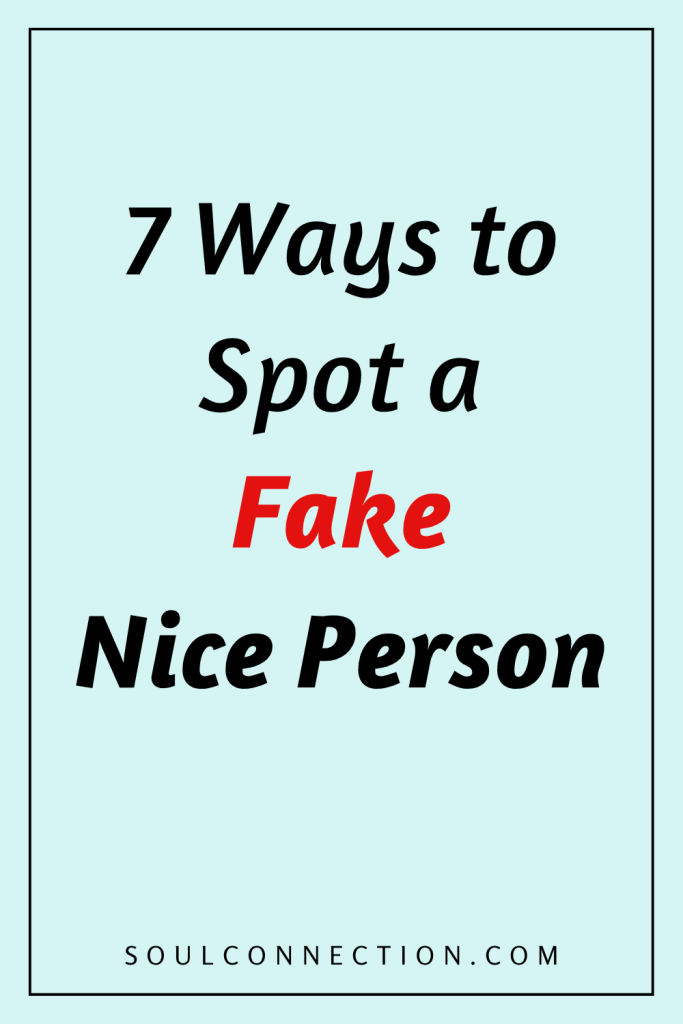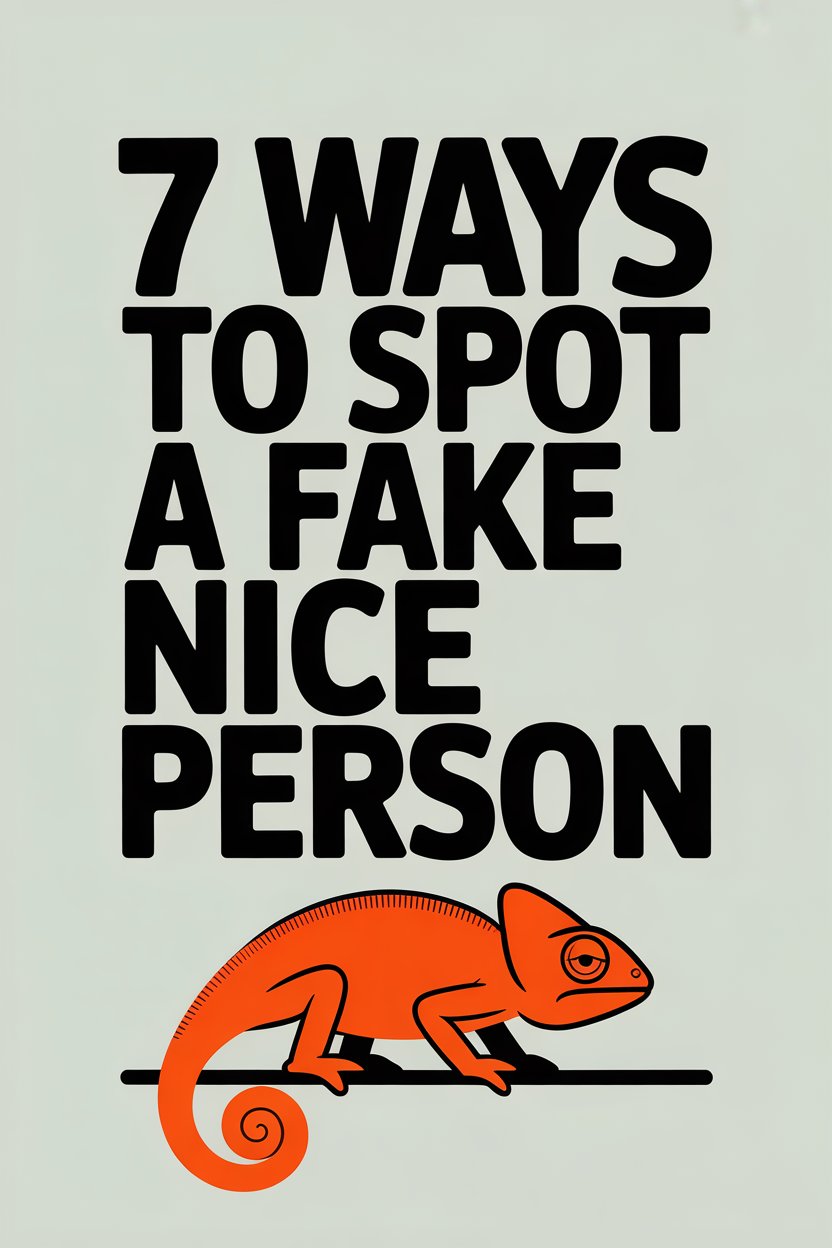Few things are as irritating as realizing the “sweetheart” in your life is about as genuine as a three-dollar bill.
Fake nice people—those masters of the passive-aggressive compliment and the “just trying to help” backstab—can wreak absolute havoc on your peace of mind. But here’s the good news: their masks slip. Every. Single. Time.
Below, we’re tackling the sneaky little signals that someone isn’t as lovely as they want you (and, honestly, themselves) to believe.
Pop the kettle on, settle in, and prepare to become a certified fake-nice-spotter by bedtime.
1 Their Kindness Comes With Strings Attached
There’s nothing like a compliment that somehow feels like a contract. A fake nice person never gives just to give.
They’re the first to help you move house, bake cupcakes for your fundraiser, or fetch you tea—then, two weeks later, you’re being reminded of that “favour” when they need a lift to the airport at 6 a.m. on a Sunday.
Strings aren’t always obvious. Sometimes it’s a vague sense that you “owe” them. Other times, it’s the actual spreadsheet they keep of every good deed.
True kindness has no scoreboard. If you find yourself feeling pressured or indebted after every act of “niceness,” you’re likely dealing with someone who isn’t in it for the joy of giving.
2 The Compliments Feel… Off
“Wow, you look great today! I barely recognized you.” Who hasn’t had the pleasure of receiving one of these gems?
Fake nice people are fluent in the art of the backhanded compliment. It’s like saying, “Your hair looks incredible!” while quietly implying that it’s an utter disaster every other day.
Pay attention to how you feel after their praise. Genuine compliments tend to leave you feeling seen, appreciated, maybe even taller.
The fake ones leave you wondering if you’ve just been roasted with a smile. If someone’s “support” consistently makes you feel small, it’s less about you and more about their need to stand taller.
3 Gossip Is Their Love Language
You know the type: always eager to fill you in on the latest drama—especially if it paints them as the hero or martyr.
They’ll swear it’s just concern, or that they’re “worried,” but somehow every story is about how someone else has fallen short… and how they, the fake nice person, would never stoop so low.
Here’s the thing—if they’re quick to spill tea about others, you’d better believe your business is next up for discussion. Real kindness means holding people’s confidences, not peddling them for social currency.
Anyone who uses “niceness” as a mask for meddling? Not your most trustworthy pal.
4 Apologies Are Nowhere to Be Found
Everyone trips up. But a fake nice person—bless their fragile ego—would rather eat broken glass than admit to a mistake. Somehow, it’s always a misunderstanding, your fault, or the universe conspiring against their pure intentions.
Expect apologies that sound like, “I’m sorry if you were offended,” or the classic, “I didn’t mean it like that, but you’re just so sensitive.”
The inability to own up and make amends is a big flashing sign that all the smiles are just window dressing. Real kindness includes the humility to say, “I messed up. I’m sorry. Full stop.”
5 They Mirror Whoever’s in the Room
Chameleons have nothing on fake nice people. Watch how they adjust their behaviour, opinions, and even their laugh to fit whoever is currently front and center. It’s all about fitting in, being liked, and avoiding confrontation at all costs.
Sure, we all want to be liked (well, apart from that one goth kid who peaked in 2003). But if someone’s personality shifts more than the British weather, it’s a dead giveaway their “niceness” depends on who’s watching, not who they really are.
Consistency matters. If you feel like you’re never sure who you’re going to get—the sweet friend, the cold-shoulder stranger, or the social butterfly—chances are, the “nice” act is just that: an act.
6 Boundaries? What Boundaries?
Ever met someone who’s “just being helpful,” but somehow always manages to bulldoze your boundaries? Fake nice folks will offer “advice” you didn’t ask for, show up uninvited, or insert themselves into your problems under the banner of “caring.”
Critique their behaviour even gently, and you’ll be treated to a wounded expression and a guilt trip worthy of an Oscar.
Healthy relationships respect boundaries. If kindness quickly morphs into overstepping, unsolicited input, or guilt-tripping, the niceness is more about control than compassion.
7 Their Generosity Disappears When Nobody’s Watching
Public acts of kindness? They’re front and center, beaming for the crowd. But when the audience vanishes, so does their generosity.
A fake nice person will treat you like royalty in front of your boss, your parents, or mutual friends. Alone, though, you might as well be invisible.
Watch how they behave when there’s nothing to gain. Will they help carry your groceries when nobody’s around to see? Is their concern the same when you’re one-on-one as it is in a group?
If the answer is “not even close,” their kindness is more performance than personhood.
Trusting Your Gut
The real magic trick of the fake nice person is making you doubt your instincts. They’ll have you asking, “Am I overreacting?” or, “Maybe they’re just awkward?”
Here’s the reality: your gut’s usually a better judge than any polite smile. If you feel uneasy, drained, or low-key manipulated after time together, pay attention.
Spotting a fake nice person isn’t about becoming jaded or distrusting everyone who brings you biscuits. It’s about recognising that true kindness feels safe, supportive, and relaxed—not like a game you’re destined to lose.
Keep your eyes open for these signs, trust yourself, and enjoy the company of those whose niceness is as real behind closed doors as it is at Sunday brunch.
The world’s full of genuinely good eggs—don’t settle for an imitation.


